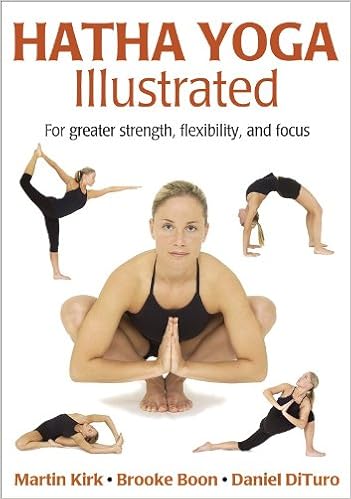For instance, if I buy a new desktop computer, I normally tear it all the way down into it's base components and put it back together again. That way I know the system. I would do the same with my car if I had the time and the tools. It satisfies my nearly insatiable curiosity for one but it also gives me an edge if something goes wrong. I know the system. I'm familiar with the parts.
I do the same with ideas, concepts and philosophies. Break them down. Slice off the propaganda and discover the core element or even the motivation behind the idea, concept or philosophy and you may very well gain insight into the myriad of human conditions.
That being said, I'll never be able to break down yoga as a system. It's just too big and too saturated with ideas both old and new from a huge variety of cultural sources. And it's so old. There is so much history to account for and considerations that cannot be ignored if you are trying to break down yoga as a system.
My attempts at breaking yoga down as a system quickly collapsed into a morass of frustration for all the stated reasons. Too much, too old, etc. But that quickly dissolved one day when I was feebly trying to explain all the different flavors of yoga to an interested party. I had to pull an analogy up that has been used before in other matters.
Yoga is like a forest. And there are many paths through the forest and some cross and some double back on themselves but it's all the same forest. Now it's important to pick the path that appeals to you but that's about it. From there you just see where you go and feel free to try that path right over there or the one that one that crosses your own. That's very fine and even healthy. Don't assume that any path is the perfect path. Keep the mind open and the feet moving.
Explaining it that what lead me to my own revelation that no matter how hard I tried, chances are that I will never see every tree in the yoga forest. And I'm okay with that. At least now I am. Because in my early attempts to disassemble the system, I came to another realization which may actually be one of the Secrets of Life.
And that secret is: Eat right. Breath right. Move.
It appears to be a key to contentment. Nutrition and a deep breath and keep the feet moving.
Now isn't interesting that yoga gives advice on one of those and systems to handle the other two? Yoga advises a no-meat to low-meat diet (but you can take that advice or leave it). Pranayama is a system devoted to breath and asanas provide work for the body.
With that revelation, I had to relax. I have the basics down. I just need to enjoy the path through the forest.
But what if I need a bit more or or a bit of clarification on a practice or concept?
That's a problem. A big problem. A problem that illustrates both the blessing and the curse of the modern Information Age. I have the sum of human knowledge and experience at my technological fingertips. And I only have to dig through everyone's opinion to get to it. This is dangerous and it requires a good bit of skepticism and maybe a little bit of cynicism to filter out the bullshit that is slowly piling up over the sum of human knowledge and experience. I'll still take it over looking at 10 year old encyclopedias but you have to understand that anyone can throw up a Youtube video or post to an Instagram account and claim a lineage back to the yoga masters of old. And if they look good, they will get followers.
I have found some fantastic teachers through online video, I will say. But I had to wade through some stuff that I knew was wrong. And it's the same with books and such. Yoga is hot right now and shows no signs of slowing down so everyone one and their dog is "recreating" yoga in their rock star image.
So where do you get your information if you need more? Your local studio? Maybe. But what if you don't have a studio nearby? Yoga is hot right know but it's not everywhere just yet.
 There are no easy answers to this one. You have to walk a tight rope of skepticism over the canyon of open-mindedness to get along.
There are no easy answers to this one. You have to walk a tight rope of skepticism over the canyon of open-mindedness to get along.But I have found some resources that I will share. First is a book that I actually started with, Hatha Yoga Illustrated. It is just the basics. It has a short introduction of the concepts and some of the breathing and then it moves into illustrations of each asana and the steps to get there. It does not get into details but it does do enough to get almost anyone started. This book and a weekly yoga class would be a perfect place to begin. I have never found another that just handled the basics so well.
Another book that has become invaluable to me is A Systematic Course in the Ancient Tantric Techniques of Yoga and Kriya. This book is thick and the type is small and it does not pull any punches on information. The forward of the book states that this is an effort to create a reference and to try to put as much of the practice and traditions into one place for this particular school. The other exceedingly cool thing is that the author explains the tradition and then goes to some effort to explain the science behind the tradition. It gets deep but if you feel that need to "go deeper" this is a great book to start with.
Understand that this is not the Westernized version yoga. I will state again that no punches are pulled although cautions are given and some of the cleansing techniques would make some squeamish. But it is a tradition to this particular school and it's interesting to read even if you would never try it. The philosophy and the approach to the asanas are well worth the price of the book and I've picked up a variety of new pranayama techniques.
It's the combination of "Here's the tradition" and now "Here's the science" and then "Here's our opinion" that has me recommending it as a reference. That breakdown leaves a lot for me to digest on my own terms and through the lens of my own experience. There is no one saying that this is the only way it can be done because that's the way they were taught. It's a book of ideas and information, not dogma.
What about videos?
Hard to say and harder to recommend. There are some great teachers that produce content on Youtube but your choice is probably going to be personal. I would avoid anyone that has incorporated the word "yoga" into another word to make a new word. But some of the established personalities are established for a reason and so the number of video views might be good guide. But follow your gut. If it doesn't seem right, it probably isn't so move on.
Honestly, I could recommend more and I could recommend what to avoid but that would run really long. But I'm finding anything with a New Age tinge would best be avoided. The New Age is really just the Old Age with the blood and guts removed. Sometimes literally. If anyone is wrapping New Age terminology around yoga terms or practices, I am instantly suspicious.
But follow your gut and stick to the basics as long as possible but don't be afraid to explore the other paths through the forest. The variation of the ways through the forest are what makes the experience so real and personal.
And all the paths through the forest don't necessarily lead to the same place. Sometimes its the journey that is important or maybe it's the destination but either way it's your journey and that final bit of commitment to your experience is power that fuels a transformation.









